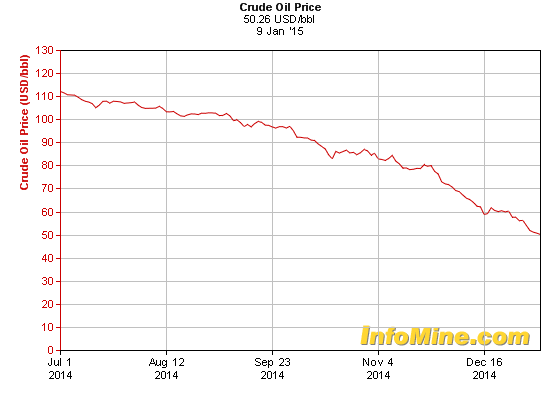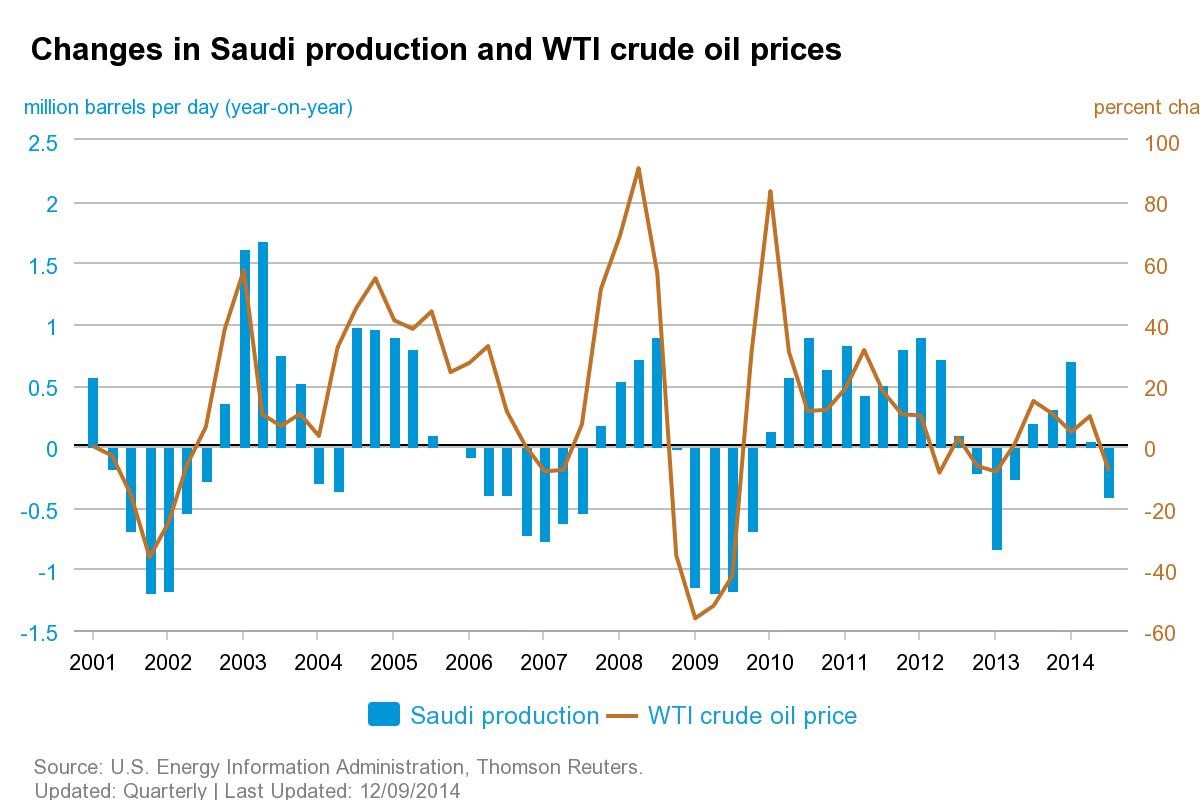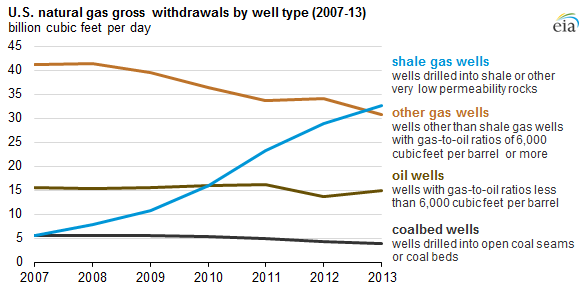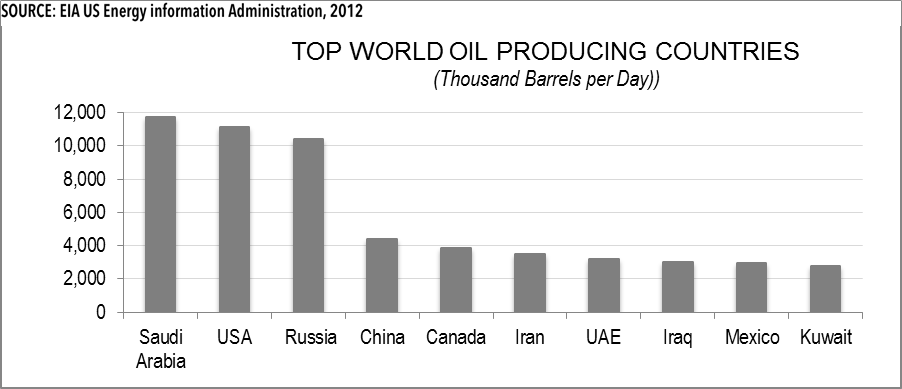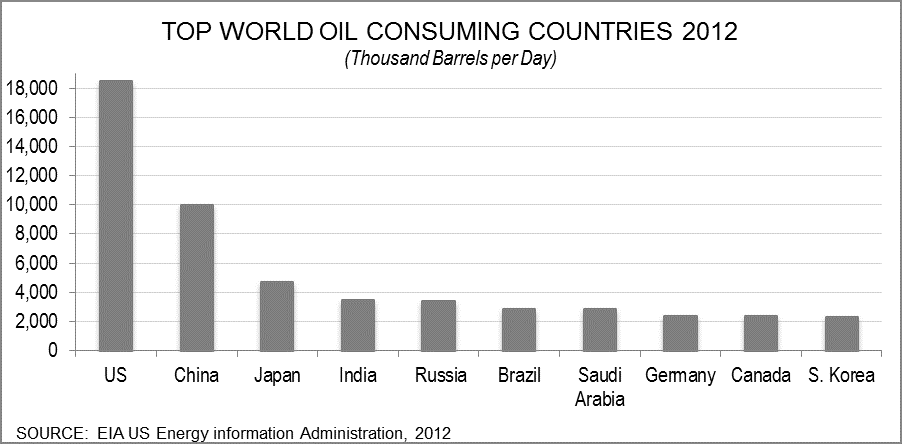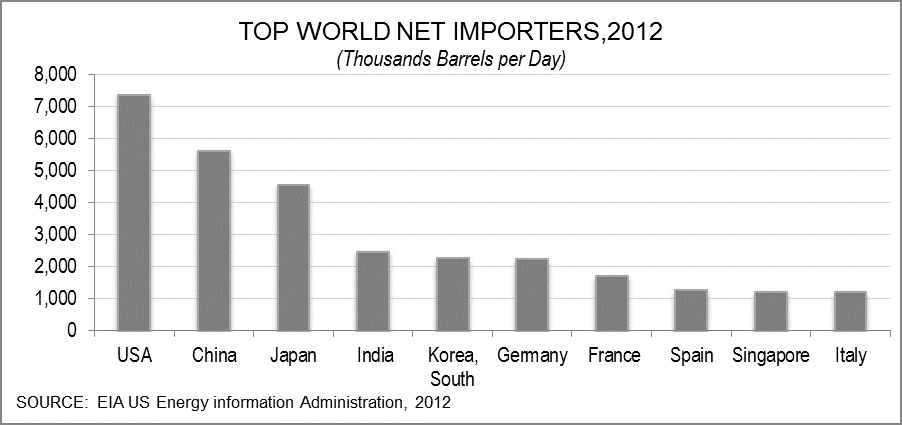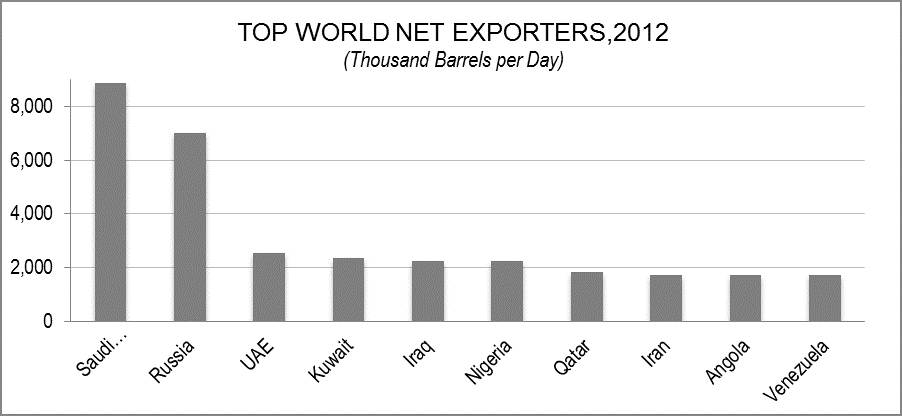Is Global Economy slipping on Oil Prices?

Please note that we are not authorised to provide any investment advice. The content on this page is for information purposes only.
Oil prices have raised concerns across the globe. But the story of oil glut is not new. In 1980s, world price of oil rose at US$35 per barrel but fell to below US$10 per barrel by 1986. At that time the oil price collapse benefitted USA, Europe, Japan and the third world nations since they were oil- consuming countries. But on the flip side, the fall in prices also damaged domestic exploration and resulted in collapse of many economies like Mexico, Nigeria, Venezuela and USSR. In US, number of active drilling rigs was halved in 1982.
Oil prices have raised concerns across the globe. But the story of oil glut is not new. In 1980s, world price of oil rose at US$35 per barrel but fell to below US$10 per barrel by 1986. At that time the oil price collapse benefitted USA, Europe, Japan and the third world nations since they were oil- consuming countries. But on the flip side, the fall in prices also damaged domestic exploration and resulted in collapse of many economies like Mexico, Nigeria, Venezuela and USSR. In US, number of active drilling rigs was halved in 1982. As a result, the US industry collapsed since the production declined due to shutdowns. But Saudi slowly regained its leading position in the world’s oil market. In 2015, the oil glut seems somewhat different even though the intention remains the same – race for global market share.
The imperfect market has proved to be a boon to consumers who are enjoying the ride on low oil prices. Their potential saving can translate into more consumers spending in other sectors. But while falling prices may be good news for consumers, it raises some very serious concerns to the world economy as a whole. The explanation for worry is simple: cheaper oil prices for those extracting oil and natural gas means that the producers will have lower profits. This can lead to losses, which in turn could affect the national economic expansion. U.S has witnessed the largest weekly fall in active oilrigs since February 1991. Consumption of crude oil in China and Europe is declining and has negatively impacted the energy industry. Drilling contracts are getting terminated and there have been many layoffs in oilfield companies. But the story is not as simple as it sounds. It gets more complicated with existing economic turmoil across the globe. Since every country has its fair share of trouble, any decline in oil prices means double trouble for any economy already facing turmoil.
Table of Contents
Decisions Made by OPEC
Crude oil production by Organization of the Petroleum Exporting Countries (OPEC) is a very important factor that affects oil prices. This organization has 12 members (6 in Middle East, 4 in Africa and 2 in South America) and it actively manages oil production. Crude oil prices have seen an increase when OPEC production targets have been lowered.
Since OPEC member countries produce 40% of world’s crude oil and export 60% of total petroleum, its actions and decisions influence the movements in oil prices. Oil markets often respond to changing expectations of future supply and demand. This chart shows how projections of changes in Saudi production result in changes in West Texas Intermediate (WTI) crude oil prices (grade of crude oil used as one of the benchmarks in oil pricing).
Source: EIA US Energy information Administration, 2012
As a leading producer (a third of OPEC total), Saudi Arabia has a significant impact on the oil prices. According to U.S. Energy Information Administration (EIA), the price decline may cost OPEC members US$257 billion of losses but the group has decided not to cut output even if prices fall below $20 a barrel. Saudi Arabia wants to avoid losing its customers to US. It has $740 billions in reserves and its own oil costs ($5-$6 per barrel).
Saudi Arabia, UAE and Kuwait have considerable foreign currency reserves so they can manage deficit in their budget for several years but it is the other members of the OPEC that face trouble. Iraq, Iran and Nigeria have inadequate foreign currency reserves and falling oil prices is bad news to them. Many less stable OPEC members like Venezuela, are, thereby, rejecting Saudi’s strategy to maintain market share till oil price rises again. OPEC refuses to cut output in order to push up the oil prices because by doing so it will further benefit non-OPEC oil producers.
An Oil Supply Increase in the US
US and Canada have significantly increased the global oil supply. The U.S has seen a sharp rise in its oil production with increasing number of shale oil wells. Back in 2005, US imported 60% of oil supply from abroad. By 2014, it only needed 30% of oil consumption, which clearly means that there is oversupply and too much supply is causing prices to drop. US still remains the largest consumer of oil and with innovative hydraulic drilling in shale rock (fracking), it is slowly moving towards being a net exporter from a net importer. While supply increases on one side, there is considerable drop in demand due to economic recessions across the globe.
Source: EIA US Energy information Administration, 2012
Strong Dollar
Oil demand across the globe has fallen considerably and this is due to many reasons: strong dollar and domestic economic collapses. Dollar has become stronger and it is bad news for countries that buy outside US. Since oil is bought and sold in US dollars across the world, weaker domestic currency to a strong dollar can weaken demand and put a downward pressure on the already falling oil prices. In short, a strong dollar is good news for US since it means cheaper oil. But it raises serious concerns for Russia, Saudi Arabia and Nigeria. Eurozone is already facing financial collapses and a weak domestic Euro is very bad news for it. Russia is already struggling with falling oil prices that is also creating double trouble for the ruble.
Mixed Reactions for Importers and Exporters
Impoters Across the World
Importers across the globe will benefit only if their economies are not already facing too much trouble.
• China: Lower oil prices could save China more than 1 percent of GDP on imports, helping boost consumption. However, it will not totally offset the larger picture of China’s slowing economy, which has seen a shift from energy-intensive construction to consumer-fuelled growth.
• Japan has a very different story to tell when it comes to oil prices. Japan’s nuclear power plant at Fukushima had been closed due to a tsunami in 2011. This caused an immense pressure on the supply and kept the prices buoyant. But in 2014, demand for oil had a sudden fall with the reopening of Japan’s nuclear program. But cheaper fuel costs could benefit industrial growth and help reduce an enormous deficit, caused by soaring fuel imports due to the shutdown of its nuclear power plants after the 2011 Fukushima reactor meltdown.
But the magnitude of effect of oil prices on Japan’s economy remains debatable. Many argue that in the long run, it could damage and further complicate the new economic strategy of Japan to combat deflation.
• India: India imports 75% of its oil and low prices could be a blessing for India’s economy. The central bank will be able to ease its monetary policy and consumer spending could increase. But again a strong dollar should be a worry for India.
• South Korea: Local economy of South Korea could get a boost from dropping oil prices since it could boost investment, exports and manufacturing. According to Reuters, the Finance Minister Choi Kyung-hwan on January 7, 2015 stated “”The recent decline in oil prices is due to supply issues…and could lead to increased income, possibly leading to bigger consumption.”
• Eurozone: Eurozone has been unstable ever since 2010. Austerity measures and decreased demand is leading to low oil demand in the region. Many economists argue that low prices are actually a boon for consumers in Eurozone since it triggers consumer spending and helps in increasing economic growth. But for regions where the country is already suffering from failing demand, low inflation and decreased growth, the news of low oil price could lead to a bigger problem. The real problem lies in the shaken confidence of the consumers, which could in turn affect their spending as they would save and wait for further drop in prices leading to fears of deflation. The negative impact of the strong dollar against the Euro will offset the positive impact of low oil price.
Exporters Across the World
• Saudi Arabia also faces low oil prices but it also has large foreign currency reserves of $740billion to finance any deficits. If the prices continue to plummet, Saudi will suffer financially. Currently, they are trying to not react and let the prices fall since they eventually want to retain their market share as the largest oil supplier in the world.
• Russia is a big victim of low oil prices. With western sanctions imposed upon the country, Russia is struggling to keep its economy safe from any further collapses. Since Russia is oil driven economy, falling oil prices reduces the value of its exports, putting a downward pressure on its currency.
• Venezuela is one of the largest oil exporters and the nation already has billions of debt in USD. It relies on oil for 95% of its export revenues. In case of falling price and a strong dollar, Venezuela’s economic position just worsens.
• Iran was on the brink of coming out of a recession when the oil prices started falling. The worst news is that it is a member of OPEC and nothing is being done about stabilizing the prices. Iran and Venezuela finally decided to work together to stabilize falling global oil prices in 2015. Iran’s economy receives a large portion of money through oil exports. International sanctions have brought down the oil exports in the region. Iran blames OPEC fellow producers of conspiring with the West to keep oil prices low.
• United Arab Emirates (UAE) is OPEC’S 5th largest producer and it has been increasing its output. The country is prepared for the oil price fall and has no plans to reduce output no matter how low the price gets.
Source: EIA US Energy information Administration, 2012
The oil battle seems like a big one as the fight for market share gets tougher and bitter between the US and Saudi Arabia. The other countries seem to be suffering more than benefitting from this oil glut. Besides existing austerity measures, western sanctions, geopolitical risks and deflation in many countries, the continuous fall in oil prices could bring bad news in the long run. The degree of benefit in countries, those importing oil at low prices, depends on the strength of their domestic currency vis-à-vis the dollar. Falling domestic currency can offset any benefit caused by fall in oil prices. Effects of oil price fall in the US will not be good news if it lasts for a long period. This is because fracking is a more expensive procedure than traditional drilling. So if the oil price falls further for a long period, then fracking cost can be unsustainable. Adding to this the permits for shale oil has significantly dropped, according to Reuters. Hence, the spill over of falling oil price seems like a never-ending spiral and an ongoing struggle. In the long run, it is just trouble for everyone.

